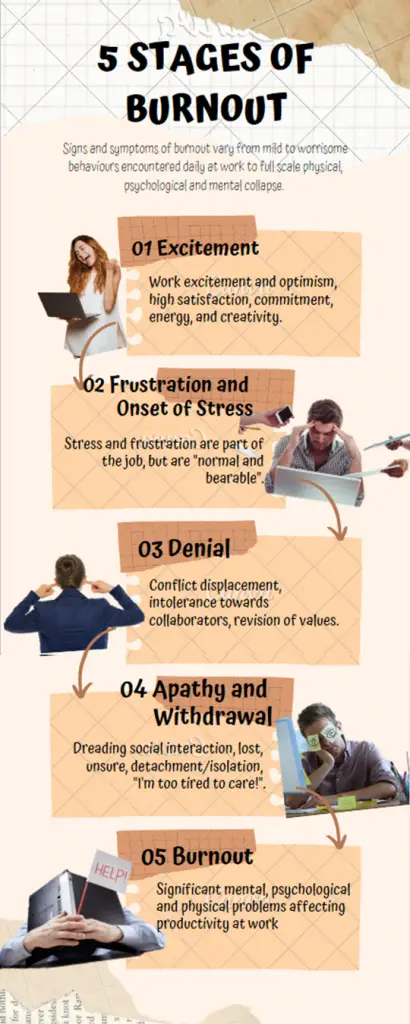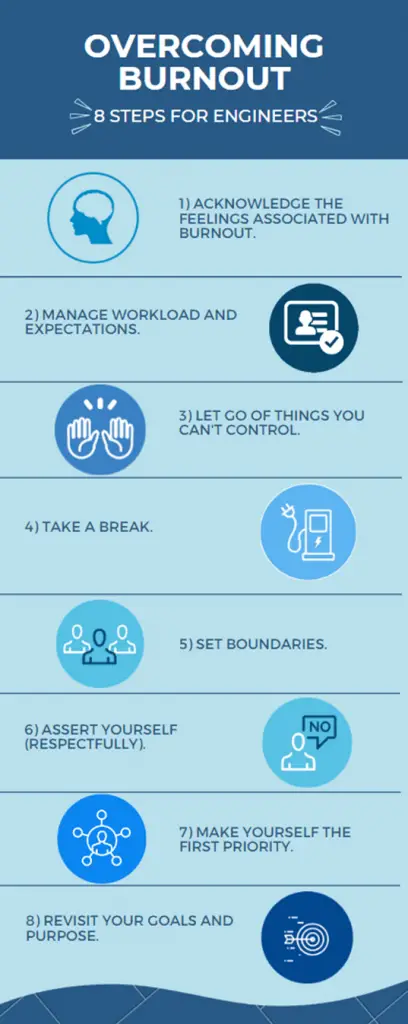
In engineering, burnout can be associated with combustion — a spontaneous chemical reaction that ignites the fuel to ash. Fitting as it is, burnout became a common term in the industry and academe pertaining to a condition of physical and/or mental collapse due to repetitive stress, pressure, and overwork, resulting in a sense of alienation, helplessness, and less productivity.
Originally coined by American Psychologist Herbert Freudenberger in the 1970s, burnout describes the consequences of severe stress and high professionalism in “service” professions (e.g. doctors, nurses, hospitality) who sacrifice themselves for others, making them listless, exhausted, and unable to cope with the requirements of the profession.
Nowadays, however, the term not only pertains to those whose profession provides “service”, but to career-driven people and overworked employees and students.
The World Health Organization defines burnout as “a syndrome conceptualized as resulting from chronic workplace stress that has not been successfully managed.” (2019)
While there are numerous indications for the phenomenon, the most common symptoms of burnout include:

Most common causes of burnout are interconnected and share a cause-and-effect relationship. Thus, it should be treated not as a single cause, but in relation to the other underlying causes of burnout.
More often than not, here are the typical scenarios in workplace environments or academic programs that eventually lead to burnout:
The unmanageable workload an employee is expected to complete, along with the inability of the employer to provide reasonable deadlines, both contribute to unrealistic expectations. Setting very high unattainable standards will cultivate crippling perfectionism, expecting employees to perform intensely for sustained periods.
Although, giving hands-on instructions and interactions with subordinates is a good quality of a manager, overdoing this can put unnecessary stress on the employee. It creates a feeling of helplessness and cultivates doubt over one’s capability.
Vague and incomplete instructions often lead to miscommunication or confusion between employers/managers and employees. Employees who are subjected to unnecessary iterations of work tasks create feelings of anxiety and exhaustion, leading to poorly made decisions, and decreased productivity.
When employees feel misguided or treated unfairly, a higher risk of dissatisfaction, distrust, and burnout can be expected. This includes insufficient rewards and appreciation, unjust punishments, and other effort-reward imbalances.
As digital platforms continue to grow together with social distancing, the lack of interaction with peers could also result in feeling isolated. A support group or social community at work and school contributes greatly to the stress-coping mechanism of an individual.
Repeated routine performed daily can lead to less creativity, challenge, and interest in work. Often, employees feel they’re stuck, bored, or unfulfilled in their career journey.
Manifestation of burnout and dealing with it varies differently per individual. With the right knowledge and strategies, you can find a suitable and healthy approach to take care of yourself and overcome. Here are some steps to help you in dealing with burnout.

1. Acknowledge the feelings associated with burnout.
Addressing the concern starts with the awareness of the symptoms and causes of burnout.
2. Manage workload and expectations.
When your workload and capacity are balanced, professional growth and development, rest, and work recovery are possible while getting your task done.
3. Let go of things you can’t control.
Though it is true that in engineering, controls are necessary, there are still several factors in place that are way beyond us. Without a doubt, you are capable of great things. However, understand that things may go unexpectedly that’s out of your responsibility. Whenever that happens, accept that some things are not in your control. This will take unnecessary pressure off your shoulders.
4. Take a break.
There are plenty of reasons why some people are reluctant to take a day off. Some examples are: not getting paid leaves, working hard for a promotion, and feeling guilty when delegating responsibilities. However, if you neglect your body’s need for rest, you may have to take a sick leave or unpaid time off later on.
Be it a week-long vacation or just leaving the workplace on time, taking breaks allow you to relax and fill you with much inspiration, new perspectives, and productivity when you return.
5. Set boundaries.
How many times have you entertained work-related calls and emails during your time off because the team “needs you” or “only you can do this”? You should affirm to yourself that you will not always be around and others must step up. While you may subconsciously think of work during your break, being aware that this particular time is dedicated to yourself is a critical step to setting up boundaries between life and work.
6. Assert yourself (respectfully).
During times when your boundaries may be challenged by your managers/employers and your assertiveness falls on deaf ears, you may:
Standing firm on the boundaries that you set will establish an atmosphere of respect between you and your employer.
7. Make yourself the first priority.
Management will always have the best interests of the company, and your colleagues are more likely to watch out for themselves. Know your strengths and keep upskilling. Don’t hesitate to leave if your growth is compromised, despite how long you’ve been with an organization. You’ll be surprised at the opportunities you are qualified for when you take the chance.
8. Revisit your goals and purpose.
You can easily lose sight of your goals and purpose when you are repeatedly exposed to stressful conditions. Re-evaluating your goals and the purpose behind them will provide a sense of direction from how far you’ve come and how much more you need to improve. Whenever you feel stuck or reached a plateau in your career, go back to your why’s.
Physical, mental, and emotional stress are inevitable, may it be at work or in our personal lives. When things feel way too heavy, don’t be afraid to ask for help. Although burnout may feel like you’ve reached a standstill in your career, know that this may be a phase that you encounter now for you to grow and be a better version of yourself.

Before deciding to quit, try and work it out first with your direct supervisors or HR. Usually, a good HR will conduct multiple counseling sessions to mitigate the situation such as offering incentives or modifying work schedules to raise employee morale. However, if all efforts have been exhausted and there’s no improvement, looking for better opportunities elsewhere may be the solution.
Other ways of dealing with burnout apart from those discussed above would be taking on a different role/function and stepping down from unreasonable responsibilities.
One Response